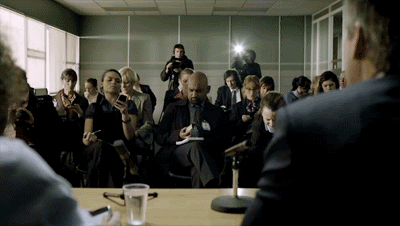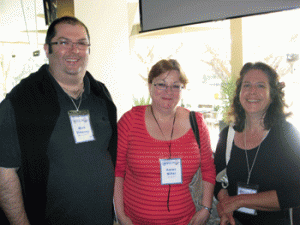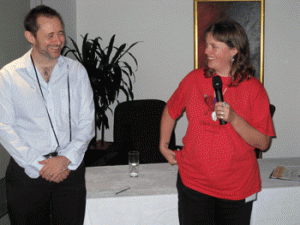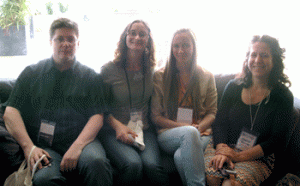
If you’ve ever read this blog, or accidentally engaged me in conversation, you’ll know I have Quite Strong Feelings about editing. And writing. And how editors and writers relate to each other and their procedures.
“Editing is tedious.”
I hear that a lot. From writers to me and/or to other writers. From other editors (less frequently). In terms of the writing process, editing is often regarded as administrative; the clean-up chore you know you have to complete in order to make your story “good enough”.
“Editing is about finding mistakes.”
That’s another line used regularly.
Too often these are views held by writers and reinforced by the editors they work with who are trying to pacify and reassure them: it’s OK to dislike this process, it’s hard; it’s not going to be pleasant, but…
I consider this an unfair and inaccurate view of editing. Both phrases put the task of editing, and thus the role itself, in a wholly negative light. And if you find editing monotonous, or perceive it as an unpleasant process, it’s possible neither writing nor editing are the right vocation for you.
Editing is key to the writing process, especially if you want to do it even semi-professionally – rather than writing for your eyes only[i].
It is part of redrafting and refining whatever you managed to get out on the page in your first flurry of inspiration.

If you take out the initial research and planning parts[ii], then unless you are one of those miracle writers who manages to type out exactly what they mean to say on the first pass and never go back, editing probably takes more time all up than putting the very first draft down on the page – whether you are self-editing or working with an editor. It includes all those rewrites and amendments you make as you go, as well as the changes you make to the final version.
So if you start out regarding it as an exhausting exercise in disparaging your hard work, you are really setting yourself up for a hard time.
And I’d say you’re doing it wrong.
And so are we, as editors, if that’s how you feel about the process.
What editing is…and isn’t
I spend a significant amount of my time as an editor reassuring writers that things I’ve marked on the manuscript are not a judgement against, or criticism of, or, in many cases, even a correction to their work. Of course, there are some changes that are marked for correction – spelling mistakes, grammatical errors etc. – but a large proportion of things I mark up are phrased as queries, suggestions, or flags for attention. I’m not marking a test. I’m not going to slash through someone’s work with a pen and send them to the back of the class for a “fail”[iii] – though I know some people (writers and editors) prefer that approach.
I’m not marking a test. I’m not going to slash through someone’s work with a pen and send them to the back of the class for a “fail”[iii] – though I know some people (writers and editors) prefer that approach.
Editors can go deeper into a work than just rectifying surface issues. Given the chance, and assuming we connect with the work/author, we can get almost as close as the story’s creator – but with the benefit of objectivity. Editors can be as passionate about a work as the author, but since we didn’t actually put the words on the page, there are no threads tying our heart to the author’s darlings. Which doesn’t immediately lead us to “kill them all” but does mean we can see why something may need fine-tuning.
An editor’s job is not to jump in and tell a writer how to tell their story or what phrasing they have to use. Rather, our role is to attempt to slip into the writer’s skin[iv] and work out how they would approach a problem or phrase, and then either pose questions or provide suggestions that might spark the synapses. The key is to help and guide the author to make sure they’ve written the story they want or intend to tell. Not, unless we have been engaged by someone for this purpose, to encourage them to write the story we think they should be writing.
It’s genuinely troubling to see the role and purpose of the editor diminished to “making corrections” and “ripping things to shreds” when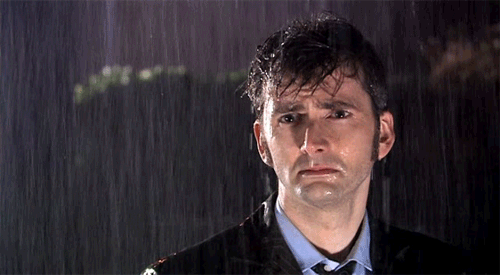 I know how hard my colleagues and I work to establish relationships of trust with authors; the time we spend getting to know each manuscript, and thus its author; and reassuring new writers that the editing process might be confronting but it doesn’t have to be painful and will be
I know how hard my colleagues and I work to establish relationships of trust with authors; the time we spend getting to know each manuscript, and thus its author; and reassuring new writers that the editing process might be confronting but it doesn’t have to be painful and will be
worth it.
Knowing how much we all love stories and writing (whether or not we write ourselves) and the creativity that is involved in the task of editing, it is disgruntling to see others cut our work down to a chore that must be endured.
But much of this sense comes from the fact that many writers don’t know what editors are capable of, or what we can offer. Particularly freelance editors. I’ve been told very matter-of-factly by several writers that they don’t think an editor would be able to help with story, or developing writing skills. (We can and do.) And more than once I’ve had writers say to me that the information and/or support and guidance they are looking for just isn’t out there if you don’t have your own circle of writing friends, or an agent, or a publisher. (It is. If you know who to ask.)
Having said that, while there are things some writers may not know they need to know, or may not realise an editor can help with, I think there are also things writers want that editors don’t always provide – or only provide by accident. Especially now that the publishing industry is changing so much and in so many different ways. With self-publishing becoming more viable, a slew of new publishing services and models on the rise, and traditional publishers often unable to offer their authors the same guidance they may have done in the past, a lot of writers I talk to seem a little adrift – unsure where to find support and advice, or how to navigate the vast quantities of information available online.
With this in mind, I think freelance editors are uniquely equipped to adapt to the developing needs of publishers and writers. Which leads me to:
What would a writer’s perfect editor look like?
The usual (only half-joking) answer to this question is “someone who tells me my work is perfect as is!” or “someone who offers me a contract!”; but, as you very well know, that is not really what I am asking. And furthermore…I don’t think either of those responses are correct.
Of course you want to impress your editor, that’s only natural. But is it really their feedback you are most concerned about? Working with an editor, whether via a publisher or privately prior to self-publishing, is just one step at the start of the process. Do you want your editor to tell you your book is amazing and nothing needs changing…or do you want your readers to feel that way? Because the role of the editor is to help you make your book the best it can possibly be. To give your readers the same joy/pain/other emotion that you get from your own story.
The editor is already on your side. We not only want to help make your book shine, it’s the whole reason we do this job. And sure, there are budgetary concerns and time constraints whichever publishing path you choose, and not all editors can do all things… but, generally speaking, editors will do whatever we can to help you and your book.
So how can we offer the best help and support? What is it writers are missing out on?
Like most editors, I already do my best to discover and understand authors’ processes and language and interests so I can communicate and feedback in a way that is most useful to them – from a position of understanding things on the outside. But I’d like to take this further.
The project
This year, I am talking to writers about what they need and want from the editing process. While an editor doesn’t need to be a writer[v], knowing their techniques, strategies and angles helps us to speak to writers in their own language. A lot of writers assume that an editor will work from a solely editorial perspective an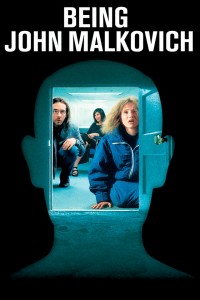 d force novelists to work to that structure: “here are rules you must follow; plain language first and foremost.” But editors are generally more flexible than that – it’s down to what works and suits the manuscript best, rather than blindly obeying writing laws. Personally, I am more interested in getting inside the writers’ mindset and working from within, rather than tidying up wordage from the outside.
d force novelists to work to that structure: “here are rules you must follow; plain language first and foremost.” But editors are generally more flexible than that – it’s down to what works and suits the manuscript best, rather than blindly obeying writing laws. Personally, I am more interested in getting inside the writers’ mindset and working from within, rather than tidying up wordage from the outside.
Putting myself in a writer’s shoes helps me not only to understand how to adapt my feedback and approach, but to weed out other writing advice and see what can be helpful or harmful. What works for one writer can be detrimental to another[vi], so every writer’s process is a helpful guide for how to work with authors.
As such, later this year I will attend a series of conferences and literature events in the UK, with the aim of learning more about how different authors create and develop their work; their writing and publishing challenges; and what they need (and want) from editors. I’ll be following[vii] agents and publishers, too, to see how they approach and respond to different needs and requirements.
I hope to talk to writers, publishers, artists, creators and producers in different fields – literature (particularly genre), film/TV, fanfic, comics etc – to find out more about how these works are created, what makes them good or bad, and how all this can translate to the editing process.
And when I get back, I’ll be looking for ways to adapt and develop Bothersome Words to better meet these needs and challenges.
![]() This project has been assisted by the Australian Government through the Australia Council, its arts funding and advisory body.
This project has been assisted by the Australian Government through the Australia Council, its arts funding and advisory body.
This is a research project that is being undertaken with the support of the Literature Section of the Australia Council for the Arts, to whom I am incredibly grateful. The Editorial Professional Development Grant supports opportunities for professional development and cultural leadership for Australian book and journal editors to enhance their literary editing skills. I am thrilled that in this case the Council is supporting a project that will largely focus on genre, allowing me to attend NineWorlds, LonCon3, FantasyCon and the Edinburgh International Book Festival in pursuit of knowledge.
Are you going to any of these events?
Drop me a line if you’d like to meet up!
Got some ideas about what editors can do to help writers?
I’d love to hear from you, too!
Comments, as always, are open…
[ii] Because yes, I understand that some books have years of research and planning behind them. A whole lifetime, in some cases.
[iii] OK. Occasionally the slashing might happen. But there are no marks awarded or deducted for your work.
[v] Some say this can be a hindrance since it can lead to the temptation to rewrite rather than query or suggest. On the other hand an editor editing something they wrote themselves can get stuck on an endless edit loop. So… you say potato, I say edible tuber…
[vi] This post about “firing the muse” and just getting on with it instead of waiting for inspiration is perfectly just and sound. But some writers do work best with a sudden flood of inspiration or a “visit from the muse”; some writers cannot handle thoroughly planning in advance.
